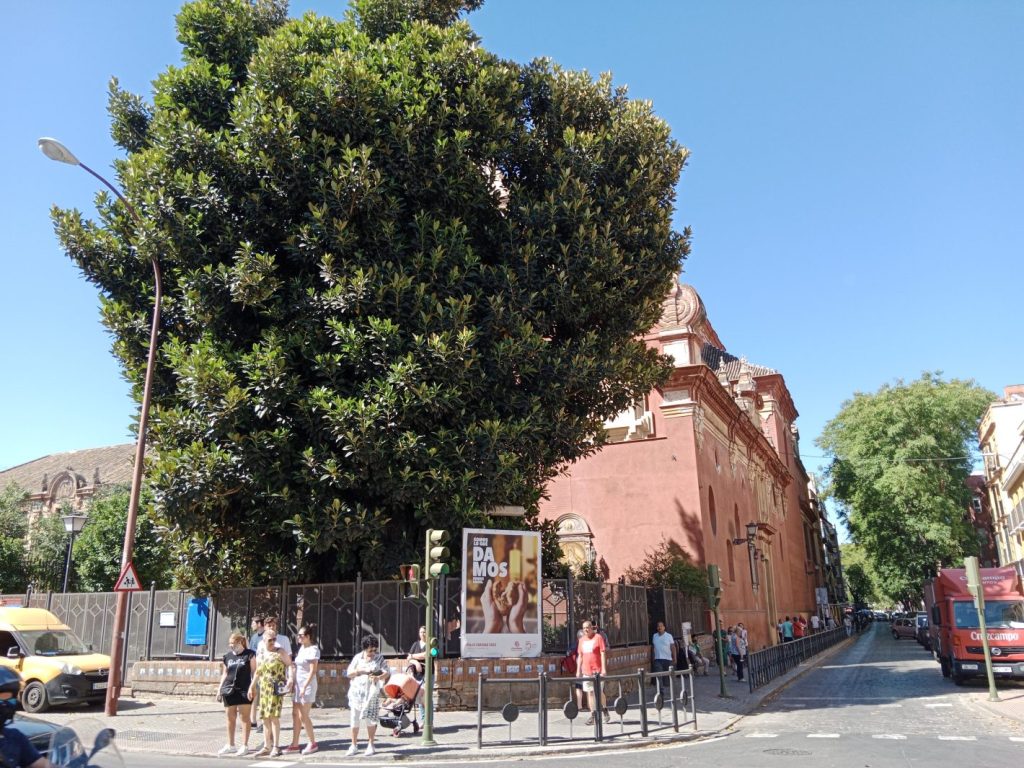On this World Day for the Care of Creation, we had to talk about the felling of the ficus tree in the parish of San Jacinto in Seville. The Google News algorithm has surely bombarded you too these days with the multiple information and opinion articles that the news has provoked.
If this is still the first time you have heard about it, let me give you some background information: a parish community, in agreement with its bishopric, with the province of the religious congregation that serves it, with the neighborhood associations and active forces of the neighborhood where it is located and with the socialist city council of the town; decides, after years of studies and search for alternatives, to cut down a tree whose excessive growth has caused accidents with serious injuries due to falling branches and threatens to destroy the multi-secular temple (declared of Cultural Interest) because it has caused damage to its foundations and structure.
Despite this, a citizens' movement in favor of the ficus, with the collection of signatures and activists perched on the branches of the tree, managed a few days ago that a judge paralyzed its felling as a precautionary measure before it definitively ended with the majestic specimen. The fact would have gone unnoticed if there were not two circumstances that have turned it into headline fodder: firstly, the fact that it took place during the month of August, making it a summer snake, which is what we call in the journalistic field to the news of relatively little importance that are extended in the summer period due to the information drought of the season; and secondly, because the Catholic Church is involved, a spicy ingredient that makes it irresistible for the addictive salseo. There is no doubt that the issue would not have been reported in the local press if the owner had been a community of neighbors, a private individual, a company or a public or private institution.
As I write this article, I am unaware of the last chapter of the soap opera, but the case gives me cause to reflect on the Church's teaching on the care of all creatures that reflect, "each in its own way - as the Catechism says - a ray of God's infinite wisdom and goodness."
At Caritas in veritateBenedict XVI affirmed that "The Church has a responsibility towards creation and must assert it in public. In doing so, she must not only defend the earth, water and air as gifts of creation that belong to all. Above all, it must protect man against the destruction of himself". This concept is further developed by Francis in his ecological encyclical, Laudato Si' under the term "integral ecology", which is nothing other than incorporating the human and social dimensions into the care of creation.
When the life of animals and plants is placed above that of people and peoples, love of creation becomes a monstrosity, an idolatry. History is littered with peoples who fell into this worship of creatures that ended up turning against themselves by despising their own life. This is what Chesterton reminded us a century ago when he coined the phrase, which is still current today, that "where there is animal worship, there is human sacrifice".
Each of the creatures of the planet has a mission and it is up to us to carry it out. God has given mankind the gift of intelligence, which is why he has entrusted him to "subdue" the earth. The correct interpretation of the book of Genesis explains to us that this dominion is not that of a savage exploiter of nature, but that of a lieutenant of God, that of a steward who is accountable to the owner of the vineyard. This responsible dominion leads us to have to make decisions that are sometimes painful but necessary for the common good.
Let us walk, as the Church asks of us, towards the necessary ecological conversion that seeks, in the final analysis, the good of all humanity. And let us praise the Lord, with St. Francis of Assisi, for all creatures, especially for the one whose existence in our times seems to be in danger of extinction: human intelligence.
Journalist. Graduate in Communication Sciences and Bachelor in Religious Sciences. He works in the Diocesan Delegation of Media in Malaga. His numerous "threads" on Twitter about faith and daily life have a great popularity.








